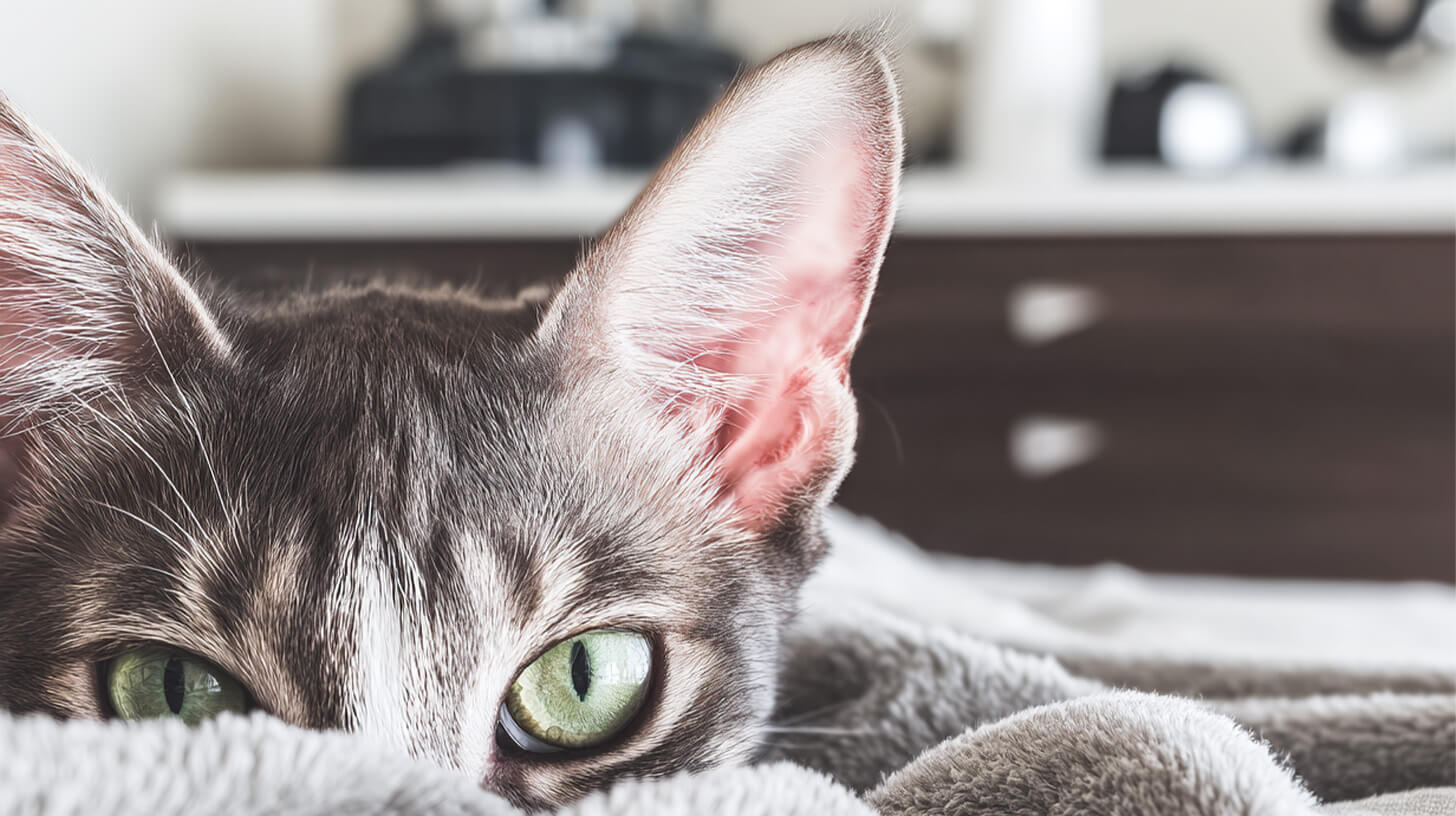Cats are fascinating creatures, and as pet owners, we often notice small changes in their behavior or appearance that spark curiosity or concern. One common question is, “Why are my cat’s ears hot?” Hot ears in cats can be normal in many cases, but they can also signal underlying health issues. This article explores the reasons behind hot cat ears, what they might mean, and when you should take action.
Why Are My Cat’s Ears Hot? Common Causes
Hot ears in cats can stem from various factors, ranging from natural body processes to medical conditions. Below, we break down the most common reasons why your cat’s ears feel warm.
1. Normal Body Temperature Regulation
Cats have a higher baseline body temperature than humans, typically ranging from 100.5°F to 102.5°F. Their ears, being thin and exposed, play a significant role in regulating body heat. When your cat is in a warm environment or has been active, their ears may feel hot as they release excess heat.
- Why it happens: Blood vessels in the ears dilate to dissipate heat, making them feel warm to the touch.
- Is it normal? Yes, especially after playtime, sunbathing, or in warm weather.
- What to do: Monitor your cat’s overall behavior. If they seem comfortable and healthy, this is likely normal.
2. Stress or Excitement
Cats can experience temporary increases in ear temperature when stressed, excited, or anxious. This is due to increased blood flow caused by an elevated heart rate.
- Why it happens: Stressful events like loud noises, vet visits, or new environments can trigger this response.
- Is it normal? Usually, yes, as long as the ears cool down once the cat relaxes.
- What to do: Provide a calm environment and observe if the warmth persists.
3. Ear Infections
Ear infections, often caused by bacteria, yeast, or ear mites, are a common reason for hot ears in cats. Infections can cause inflammation, leading to warmth and discomfort.
- Symptoms to watch for:
- Redness or swelling in the ear
- Scratching or pawing at the ears
- Foul odor or discharge
- Head shaking or tilting
- What to do: Contact your veterinarian for a diagnosis. They may prescribe antibiotics, antifungals, or mite treatments.
4. Allergies
Allergies to food, pollen, or environmental factors can cause inflammation in a cat’s ears, making them feel hot. Cats with allergies may also show signs of skin irritation.
- Symptoms to watch for:
- Itchy skin or excessive grooming
- Sneezing or watery eyes
- Red or scabby ears
- What to do: Consult a vet to identify the allergen and discuss treatment options, such as dietary changes or antihistamines.
5. Fever or Illness
Hot ears can sometimes indicate a fever, which may be a sign of an underlying illness like an infection, dental disease, or a systemic condition.
- Symptoms to watch for:
- Lethargy or reduced appetite
- Nasal discharge or coughing
- Warmth in other areas, like the belly or paws
- What to do: Take your cat’s temperature with a pet-safe thermometer (rectal or ear thermometers work best). If it exceeds 102.5°F, contact your vet immediately.
6. Sunburn or Overheating
Cats with light-colored or hairless ears are prone to sunburn, especially if they spend time outdoors or in sunny spots. Sunburn can make ears feel hot and appear red or flaky.
- Symptoms to watch for:
- Red, peeling, or crusty ears
- Sensitivity when touching the ears
- What to do: Limit sun exposure and apply pet-safe sunscreen if recommended by your vet. Seek veterinary care for severe cases.
When to Be Concerned About Hot Cat Ears
While hot ears are often harmless, certain signs indicate a need for veterinary attention. Contact your vet if your cat shows:
- Persistent ear warmth lasting more than a day
- Behavioral changes, such as lethargy or aggression
- Discharge, odor, or swelling in the ears
- Signs of pain when the ears are touched
- Fever (temperature above 102.5°F)
How to Check Your Cat’s Ears
If you’re wondering, “Why are my cat’s ears hot?” a quick inspection can provide clues:

- Feel the ears: Compare the warmth of the ears to other parts of the body, like the paws or belly.
- Look for abnormalities: Check for redness, swelling, discharge, or an unusual odor.
- Monitor behavior: Note if your cat is scratching, shaking their head, or acting differently.
- Take their temperature: Use a pet-safe thermometer for an accurate reading.
Preventing Hot Ears in Cats
To keep your cat’s ears healthy and prevent issues:
- Clean their ears regularly: Use a vet-approved ear cleaner to remove dirt and wax.
- Protect from sun exposure: Keep light-colored cats indoors during peak sun hours.
- Maintain a comfortable environment: Avoid overly warm or stressful settings.
- Schedule regular vet checkups: Early detection of infections or allergies can prevent complications.
Conclusion
If you’re asking, “Why are my cat’s ears hot?” the answer could range from normal heat regulation to a health issue like an infection or fever. By observing your cat’s behavior and checking for additional symptoms, you can determine whether veterinary care is needed. Regular ear cleaning, a comfortable environment, and prompt attention to unusual signs will keep your feline friend healthy and happy.
Disclaimer: Always consult a veterinarian for professional advice if you’re concerned about your cat’s health.
